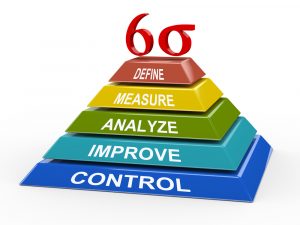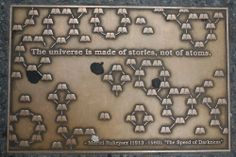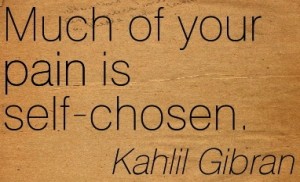Embracing Uncertainty, the space in-between
Navigating the space in between what was, what is, and what will be, can be daunting.
Yet, in those days, weeks, months or years, we conceive and create our future.
“Choose to live in the present moment” is fine advice. Living mindfully, embracing self-care and a sense of prosperity requires skill building and support. But where to begin?
Might I suggest that we take a lesson from the business world. Just for a moment, let’s not think in terms of a therapeutic or spiritual journey. Consider it a “personal change-management” program.
“The Quest for Resilience” (Hamel & Välikangas), got my attention a few years back. Originally published in the Harvard Business Review (2003), the paragraph headed, “Zero Trauma” was captivating. This followed:
“The quest for resilience can’t start with an inventory of best practices. Today’s best practices are manifestly inadequate. Instead, it must begin with an aspiration: zero trauma. The goal is a strategy that is forever morphing, forever conforming itself to emerging opportunities and incipient trends. The goal is an organization that is constantly making its future rather than defending its past… In a truly resilient organization, there is plenty of excitement, but there is no trauma.”
Now try re-reading it. Substitute “individual” for “organization”.
The human condition is unlikely to allow for “no trauma”, but when one frames this process as the “avoidance of pain”, we’re returned to the discipline of living one day at a time, mindfully and to its fullest.
The article continues:
“Sound impossible? A few decades ago, many would have laughed at the notion of “zero defects.” If you were driving a Ford Pinto or a Chevy Vega, or making those sorry automobiles, the very term would have sounded absurd. But today we live in a world where Six Sigma, 3.4 defects per million, is widely viewed as an achievable goal. So why shouldn’t we commit ourselves to zero trauma?”
 And in the business world the SixSigma process is the gold standard.
And in the business world the SixSigma process is the gold standard.
What would a “Personal Six Sigma” process look like? Pretty much the same.
Existing interventions and methodologies such as 12-Step Programs, Cognitive Behavioural Therapy and self-help programs all employ similar methods.
Which makes a powerful case for skill building in support of well being. Particularly when taken out of the realm of pathology and treatment, while delivered as fitness training and education. To begin –
Define the problem
Consciously or unconsciously we have all adopted rituals and habits in our daily lives that either support or undermine well being.
- Perhaps there isn’t a problem that is easily named, just a sense of wanting more, a feeling that we’re not “firing on all pistons”.
- Perhaps we are struggling with a weight problem, issues around drink, gambling or drugs.
- Perhaps we are in transitional relationship, work or academic situation or a life stage.
Measure
As you map your current processes, ask yourself:
How are you sleeping?
How stressful is everyday life?
Are you living within your means?
Are you satisfied with your career?
Are you passionate about your work or your hobbies?
When was the last time you found yourself “the zone” – entirely immersed in an experience?
Analyse
Choose to identify the cause of the problem. Don’t go it alone!
Ask for help. Join a group, find a coach, a trainer, a therapist or consult your GP – because analysis requires perspective.
Going it alone means you’re working with an often undermining ‘committee in your head‘ . It repeats and reinforces your doubts and your negative self-talk.
To quote the linked article:
“Like any healthy organizational board, you should consider a term limit and invite new members to the committee.”
Asking for help is not about diagnosing a problem. It is simply about defining and isolating causes and effects.
Begin by asking yourself: What pain am I self-medicating when I’m over (or under) eating, sleeping, exercising, drinking, drugging, spending, etc.?
Improve
Implement and verify the solution in a supportive environment. One process at a time. This does not involve grandiose schemes or major life changes. Isolate a single sentiment – “I’m miserable, I’m going to quit my job, leave my marriage, or move or whatever”.
Then isolate a small, simple, discrete change. It will make a difference. Choose one – or suggest another.
-
-
-
-
-
- I’ll take to my bed at 9pm with a good book, leave the phone and tablet in the next room and get more rest.
- I’ll reduce my caffeine, alcohol, drug, and or sugar intake.
- I’ll monitor, chart or list my eating, drinking, gambling or spending.
- I’ll keep a mood chart and note my periods of irritability, exhaustion, high energy, sadness or lethargy.
- I’ll walk for 20 minutes three times a week.
-
-
-
-
Control
If an intervention or changed behavior works, map it out, monitor it, make it a habit, and embrace a new ritual.

Then start again. You’re training for resilience.
Nothing succeeds like success with each incremental change you’ll be energised.
That’s it, simple but not easy, and achievable.
If “Personal Change Management“ seems like a good approach, get in touch.
Introductory sessions, six and twelve week groups are forming to help you navigate the process.
 Imagine if we, as a culture, could embrace depression. Imagine that in any life cycle there are, as in nature, seasons. Depression does not always have to be viewed as pathology.
Imagine if we, as a culture, could embrace depression. Imagine that in any life cycle there are, as in nature, seasons. Depression does not always have to be viewed as pathology.








 This blog is a relaunch of one that I started in 2009 in support of an enthusiastic mid-life relocation to Ireland while embarking on the path of a reluctant entrepreneur.
This blog is a relaunch of one that I started in 2009 in support of an enthusiastic mid-life relocation to Ireland while embarking on the path of a reluctant entrepreneur.